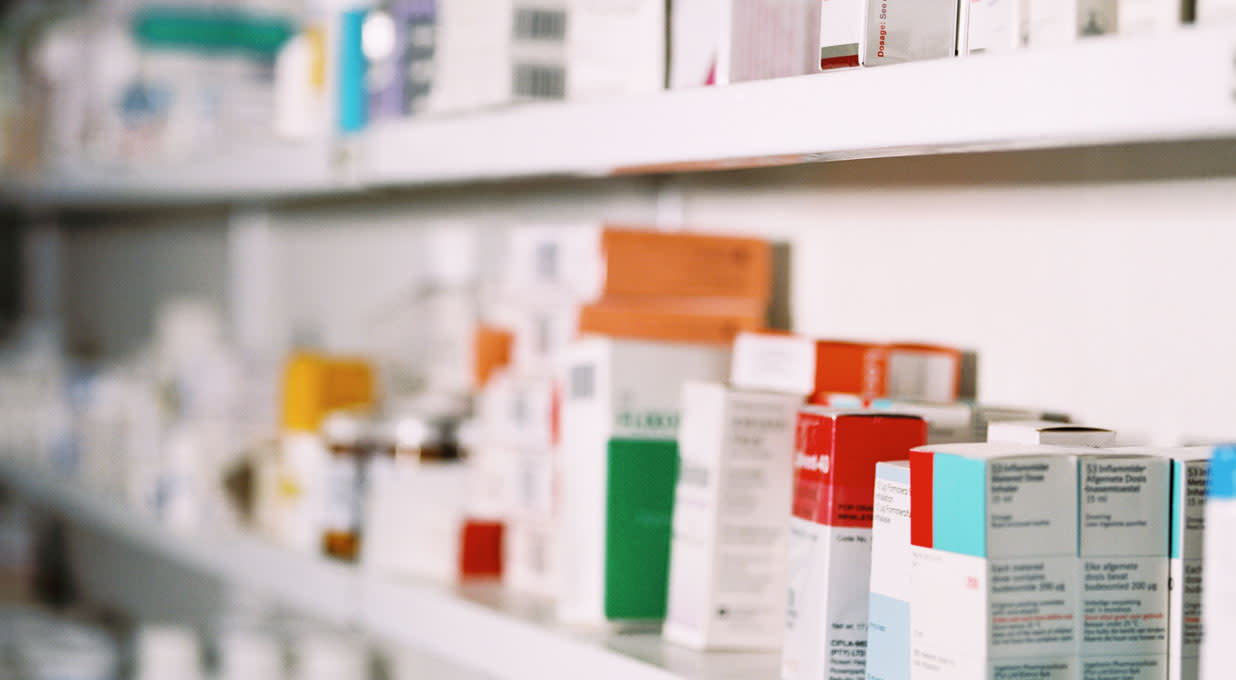Novo Nordisk’s second-quarter sales increased 25% to 68.1bn DKK (Danish Kroner), ignoring the impact of exchange rates. This reflects strong growth in GLP-1 diabetes and obesity care medicines.
Operating profit was up by 9% to 25.9bn DKK, but 3.4% behind consensus forecasts. Revenue growth was partly offset by lower profitability due to ongoing efforts to increase capacity. There was also a one-off 5.7bn DKK loss relating to the impairment of the value of a drug that disappointed in clinical trials.
Free cash flow for the half year fell 4.2bn DKK to 41.3bn DKK, and the company spent a total of 38.9bn DKK on share buybacks and dividends. Net cash came in at 5.6bn DKK.
Full-year sales growth guidance before the impact of currencies has been raised to 22-28%, from a prior range of 19-27% excluding currency impacts, but operating profit guidance fell a little to 20-28%.
An interim dividend of 3.50 DKK has been announced.
The shares were down 2.9% following the announcement.
Our view
The dip in sentiment following Novo Nordisk’s full year earnings downgrade was not too severe. Profits have been held back by the reduction in accounting value of one of the company’s pipeline candidates. Ignoring this, Novo looks to be on track to meet or better its original guidance.
Novo Nordisk’s fastest growing products are its range of GLP-1 products for the treatment of type 2 diabetes and, more controversially, as a weight-loss aid.
The market opportunity for this new generation of obesity treatment has the potential to support strong growth for many years, particularly as more use cases emerge for the treatment of associated medical conditions such as osteoarthritis and liver and kidney diseases. Key medical agencies have already recognised it as an effective means of reducing the risk of cardiovascular diseases.
But concerns are emerging about the long-term safety of GLP-1 and Novo has attracted criticism for its marketing practices for one of its other obesity treatments. Potential restrictions on usage and marketing, as well as emerging competition, are risks to watch out for further down the line. Downwards pressure on pricing, particularly in the United States, where the private cost of Wegovy is over $1,300 per month, could impact profitability further down the line.
The rare disease market is another area of focus and one which has met with recent clinical success. This is something we'll be monitoring with interest, but it's currently only a small part of the business.
A dominant market share and attractive end markets would be enough to attract investors' attention on their own, but Novo also runs a pretty tight ship operationally. That's allowed the group to boast operating profit margins consistently over 40%. There are some headwinds to margins as Novo seeks to internalise more of its supply chain and drive the research agenda, but overall they remain very robust,
Manufacturing bottlenecks still seem to be the main constraint on growth across the business. Despite these challenges, the group expects operating profit to grow between 20-28% this year - hardly a snail's pace. The strong financial position means it can afford the $11bn pledged to acquire three manufacturing sites from Catalent later this year.
But that may not be an instant fix of the supply constraints. And with a valuation sitting some way above the long-term average there’s real pressure to resolve the situation. We’re excited about the long-term potential but the likelihood of ups and downs remains elevated.
Environmental, social and governance (ESG) risk
The pharmaceuticals sector is relatively high-risk in terms of ESG. Product governance, particularly with safety and marketing, and affordable access to treatment are the key risk drivers. Labour relations, business ethics and bribery and corruption are also contributors to ESG risk.
According to Sustainalytics, Novo Nordisk's management of ESG risks is strong. Executive pay is linked to both financial and non-financial targets, including sustainability targets, though it's unclear exactly how the two are linked. Novo Nordisk's product quality and safety programmes are adequate. The company also addresses pricing and access to medicine in emerging markets and the US. In general, Novo Nordisk has strong policies and programmes to address business ethics issues, but fails to address anti-competitive practices and has been implicated in alleged price fixing and questionable promotional activity controversies.
Novo Nordisk key facts
All ratios are sourced from Refinitiv, based on previous day’s closing values. Please remember yields are variable and not a reliable indicator of future income. Keep in mind key figures shouldn’t be looked at on their own – it’s important to understand the big picture.
This article is not advice or a recommendation to buy, sell or hold any investment.No view is given on the present or future value or price of any investment, and investors should form their own view on any proposed investment.This article has not been prepared in accordance with legal requirements designed to promote the independence of investment research and is considered a marketing communication.Non - independent research is not subject to FCA rules prohibiting dealing ahead of research, however HL has put controls in place(including dealing restrictions, physical and information barriers) to manage potential conflicts of interest presented by such dealing.Please see our full non - independent research disclosure for more information.


